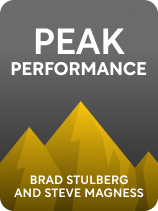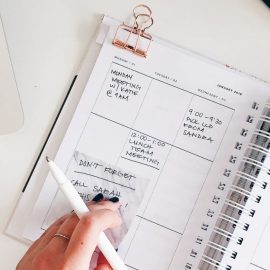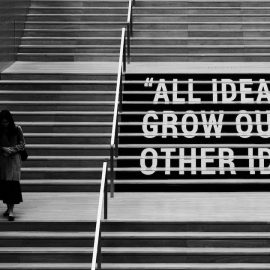

This article is an excerpt from the Shortform book guide to "Peak Performance" by Brad Stulberg and Steve Magness. Shortform has the world's best summaries and analyses of books you should be reading.
Like this article? Sign up for a free trial here.
Do you know how to rest effectively? Why is rest important for personal growth?
Although it’s tempting to think of rest as something passive, Brad Stulberg and Steve Magness argue that we should take active steps to rest effectively. We can do this by practicing mindfulness, prioritizing sleep, and taking short walks.
Keep reading for strategies on getting the most out of rest.
Strategy #1: Practice Mindfulness
Mindfulness meditation, Stulberg and Magness explain, is a Buddhist form of meditation that involves focusing solely on one’s breathing. By practicing mindfulness when resting, practitioners become better at coping with stress. To show how to rest effectively, Stulberg and Magness point to studies demonstrating that mindfulness meditation is associated with increased activation in the prefrontal cortex, the part of our brain that controls our stress response. Other studies have found that experienced mindfulness practitioners respond better to pain and discomfort than novices—according to brain scans, experienced practitioners are able to switch off the emotional response to pain in their amygdalas, while novices cannot.
(Shortform note: While Stulberg and Magness emphasize that mindfulness involves focusing on one’s breathing, expert mindfulness practitioners point out that focusing on breathing is just an entry-level step into mindfulness meditation. According to these experts, focusing on your breathing should be a gateway into quieting your mind so you can become more aware of your thoughts. Through recognizing and accepting these thoughts, mindfulness practitioners aim to foster compassion for themselves and others.)
Strategy #2: Prioritize Sleep
According to Stulberg and Magness, sleep is another crucial form of rest for intellectuals and athletes alike. Stulberg and Magness relate that numerous studies have shown that sleep helps us consolidate information—in other words, it reinforces the information that we know and forges connections between new pieces of information. However, they point out that sleep’s key benefits are derived from rapid eye movement (REM) sleep, which largely occurs between hours seven and nine of sleep. Consequently, intellectuals need copious amounts of sleep to reap its full benefits.
Stulberg and Magness also note that, for athletes, sleep is crucial for activating the anabolic state—a state in which hormones like testosterone and human growth hormone flood our bodies and help repair our muscles and bones. These hormones are released during REM sleep, meaning sleep-deprived athletes can enjoy outsized physical benefits simply by sleeping a couple hours longer to spend more time in REM sleep.
Concrete Strategies for Getting High-Quality Sleep
Although Stulberg and Magness emphasize the importance of sleep in the recovery cycle, they don’t provide any actionable insights to promote higher-quality sleep—insights that are especially important since about one-third of Americans struggle with sleep deprivation. To that end, experts recommend several concrete strategies to improve your sleep hygiene and get better sleep:
- Maintain a consistent sleep schedule.
- Turn off electronic devices 30 minutes prior to bedtime to prevent blue light from interfering with your sleep hormones.
- Avoid consuming alcohol and caffeine in the evening.
- Minimize light exposure before bed to prevent interruptions to your sleep cycle.
- Eat snacks before bed rather than large meals.
While none of these individual strategies are foolproof, they can collectively maximize your chances of getting a good night’s rest.
Strategy #3: Take Short Walks
Stulberg and Magness argue that taking short walks is an underappreciated form of rest. They note research showing that these walks can spark creative ideas. The researchers separated workers into three groups—one that didn’t go on a walk, one that went on a six-minute walk outdoors, and one that went on a six-minute walk indoors—and had everyone take the same creativity test. Those who walked outdoors and those who walked indoors scored 60% and 40% higher than those who didn’t walk at all, respectively.
(Shortform note: In addition to sparking creativity, health experts have found that walking has a score of other unexpected health benefits. For instance, studies have shown that regular walks are associated with better immune function and thus fewer sick days. For those suffering from arthritis, regular walks have been shown to assuage joint pain. And for women in particular, walking is associated with a significantly decreased risk of breast cancer later in life.)

———End of Preview———
Like what you just read? Read the rest of the world's best book summary and analysis of Brad Stulberg and Steve Magness's "Peak Performance" at Shortform.
Here's what you'll find in our full Peak Performance summary:
- That the quest for excellence leaves us suffering from exhaustion and burnout
- Why cycles of stress and rest are necessary for sustainable elite performance
- How to develop a consistent routine and structure your time






